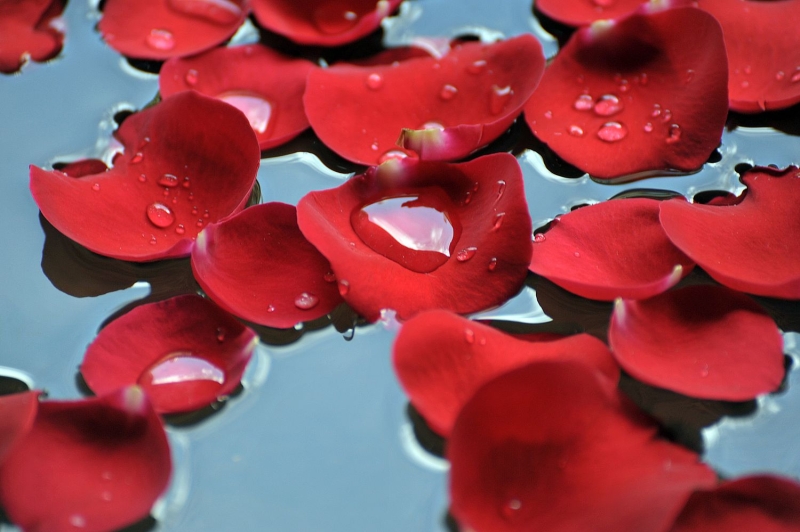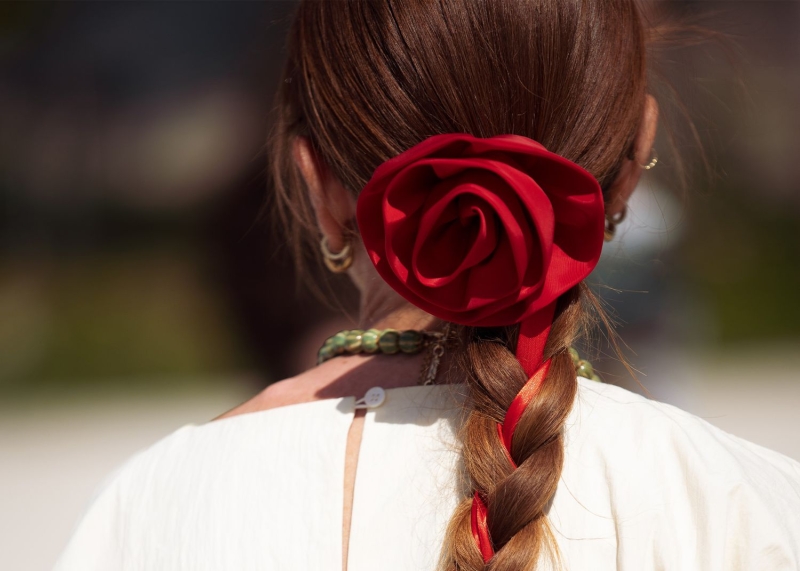Its beautiful scent isn’t the only perk.
There’s nothing we love more than multipurpose beauty products—rose water being one of them. Not only does it help achieve glowing skin but it also wields serious perks for both hair and scalp. And let’s not forget that it smells amazing too.
“Rose water is amazing for the hair,” says Lin Chen, co-founder of sustainable beauty brand Pink Moon. “It’s hydrating, and adds moisture to damaged, dry hair—it’s especially wonderful for processed or colored hair.”
Rose water is a mild astringent with anti-inflammatory properties that can also help reduce oiliness, says board-certified dermatologist Dr. Marisa Garshick. So those with oily scalp, dandruff, or seborrheic dermatitis can definitely benefit from incorporating rose water into their haircare and scalp routine.
Because rose water is beneficial to the overall health of the scalp, it can also help establish a good foundation for hair growth and help prevent hair loss. "Rose petals are high in vitamins A, B3, C, and E, which nourish the scalp and stimulate hair follicles, promoting hair growth," explains Chen.
How to Make Rose Water
Rose water is really easy to make by simmering or by distillation. As the first step for both methods, it is important to pluck the rose petals from the stems to get rid of any residue.
"To make rose water by the simmering method, add rose petals to a pot and cover the petals with distilled water, allow the water to simmer until the petals lose their color," instructs Dr. Garshick. "To make rose water through distillation, place a bowl in the center of a pot and put petals and distilled water in the pot. Next, cover the pot with the lid upside down and place ice cubes in the lid. Bring the pot to a boil and then allow it to simmer until the petals lose their color."

How to Use Rose Water
Using two rose water two to three times a week is recommended. Increased frequency of use may affect the scalp’s pH level. Rose water can be applied directly to the hair or scalp as shampoo, conditioner, an after-shampoo rinse, or as a mist. Although the application may vary depending on whether you make your rose water at home or buy a hair product infused with rose water, the results will be very similar.
Frequently Asked Questions
- What is the shelf life of rose water?
Rose water can last up to six months. It's best to store the solution in an airtight container or a spray bottle in the fridge to maintain freshness.
Are there any side effects to using rose water for hair?
Unless you have an allergy to roses or other flowers, rose water is generally safe for all hair types and textures and should not pose any adverse side effects. However, if you have any concerns, consult your doctor before use.
Which hair types can benefit from rose water?
Rose water is suitable for all hair types, so there's no harm in giving it a try. In terms of which hair type will benefit most, Dr. Garshick says those with oily scalp and hair can benefit from its astringent properties, while those who have dry scalp and hair can benefit from the hydrating and moisturizing ones.
